|
|

Liberty to be True, Generous, and Sincere
This Sunday's Reflection - February 8, 2026
Get it in PDF form with calendar
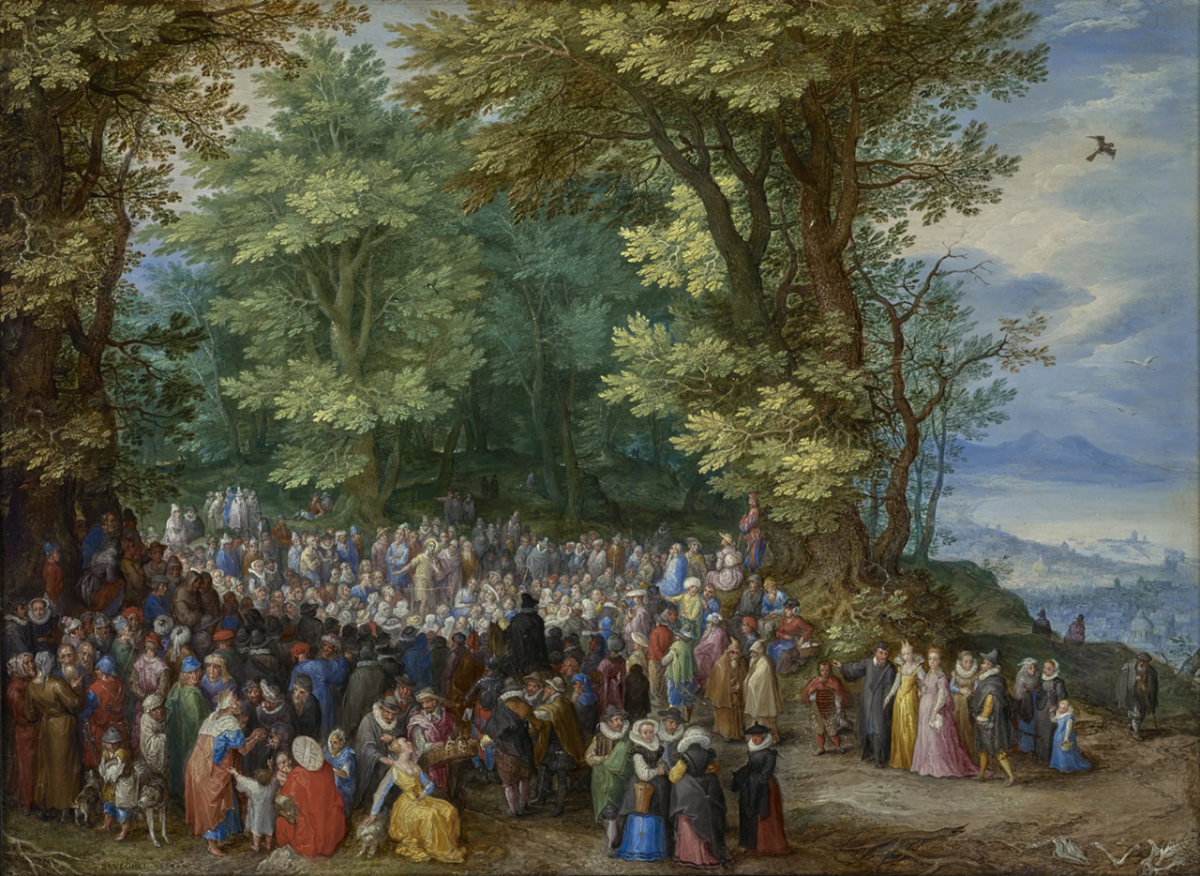
FREEDOM FOR
AN ABUNDANT LIFE
The Collect for this Sunday asks for something both daring and deeply practical: “Set us free, O God, from the bondage of our sins, and give us the liberty of that abundant life…” It assumes two things we do not always like to admit. First, that we are bound by habits, fears, patterns of self-protection, ways of seeing the world that diminish our souls. And second, that freedom is not merely the absence of constraint, but the presence of a life so full it can only be duly called abundant.
St. Paul, writing to the Corinthians, knows how easy it is to miss that kind of freedom. When he first came to them, he says, he did not arrive with eloquence or philosophical brilliance. He came in weakness and fear, speaking simply of Jesus Christ, and Him crucified. Paul is not rejecting intelligence or learning; he is rejecting the temptation to make faith into a performance, or a system we can master. If the gospel depends on our cleverness, our moral polish, or our persuasive skills, then it is no longer Good News. It becomes just another arena in which we try to prove ourselves.
Instead, Paul insists that true wisdom comes as a gift, revealed by the Spirit. It is “God’s wisdom, secret and hidden,” not because God enjoys keeping secrets, but because it cannot be grasped through control or self-assertion. It is known only through trust. And that is where freedom begins.
Bondage often looks respectable. It can sound like competence, certainty, or religious correctness. The Corinthians were tempted to measure spiritual life by impressive speech and visible strength. We are tempted to measure it by productivity, by being right, by keeping everything running smoothly. Even our faith can become another thing we manage. But Paul reminds us that the heart of Christian life is not mastery but surrender; not passivity, but a willingness to let God define what really counts as wisdom, power, and success.
Isaiah gives this surrender a concrete shape. The prophet speaks to people who look serious about religion: they fast, they pray, they seek God’s will. Yet God tells them their worship rings hollow because their daily lives remain unchanged. True devotion, God says, looks like loosening the bonds of injustice, feeding the hungry, sheltering the homeless. Freedom from sin is never only about personal morality; it is about being released from the self-centered life that leaves others crushed under our indifference.
Psalm 112 shows us what this liberated life looks like when it takes root. The righteous are described as generous, steady, unafraid. Their hearts are firm because they trust in the Lord. This is not a portrait of anxious rule-keeping, but of a person whose inner life has been reordered. When we are no longer consumed with protecting ourselves, we become free to give, to act justly, to stand in the world without fear.
Jesus brings all of this into sharp focus in the Sermon on the Mount. “You are the salt of the earth… You are the light of the world.” He does not say, “Try harder to become salt and light.” He says that, by belonging to Him, we already are. The danger is not that we are inadequate, but that we forget who we are and hide it. When faith is reduced to private belief or moral anxiety, its light dims. When it is lived as trust in God’s self-giving love, it shines naturally—often without our even noticing.
The abundant life promised in the Collect is not a life without struggle. Paul himself knew fear and weakness. Jesus speaks of light in a world that often resists it. Isaiah names injustice that does not disappear overnight. Freedom, in the Christian sense, is not escape from difficulty; it is release from the lie that we must save ourselves.
In daily practice, this freedom may look small. It may be the courage to speak honestly when we would rather impress. It may be the decision to listen instead of defending, to give instead of hoarding, to rest instead of proving our worth through constant activity. It may be the quiet trust that God’s Spirit is already at work, even when we feel inadequate or unsure.
As we move through this season after Epiphany—a season of light—these readings invite us to notice where we are still enslaved, and to ask God not simply for forgiveness, but for liberty. Liberty to live truthfully. Liberty to love generously. Liberty to let our lives, imperfect as they are, bear witness to a wisdom deeper than our own.
Fr. Carlos Expósito, Rector
|
RETURN TO TOP
The Authentic Way of Love
This Sunday's Reflection - February 1, 2026
Get it in PDF form with calendar
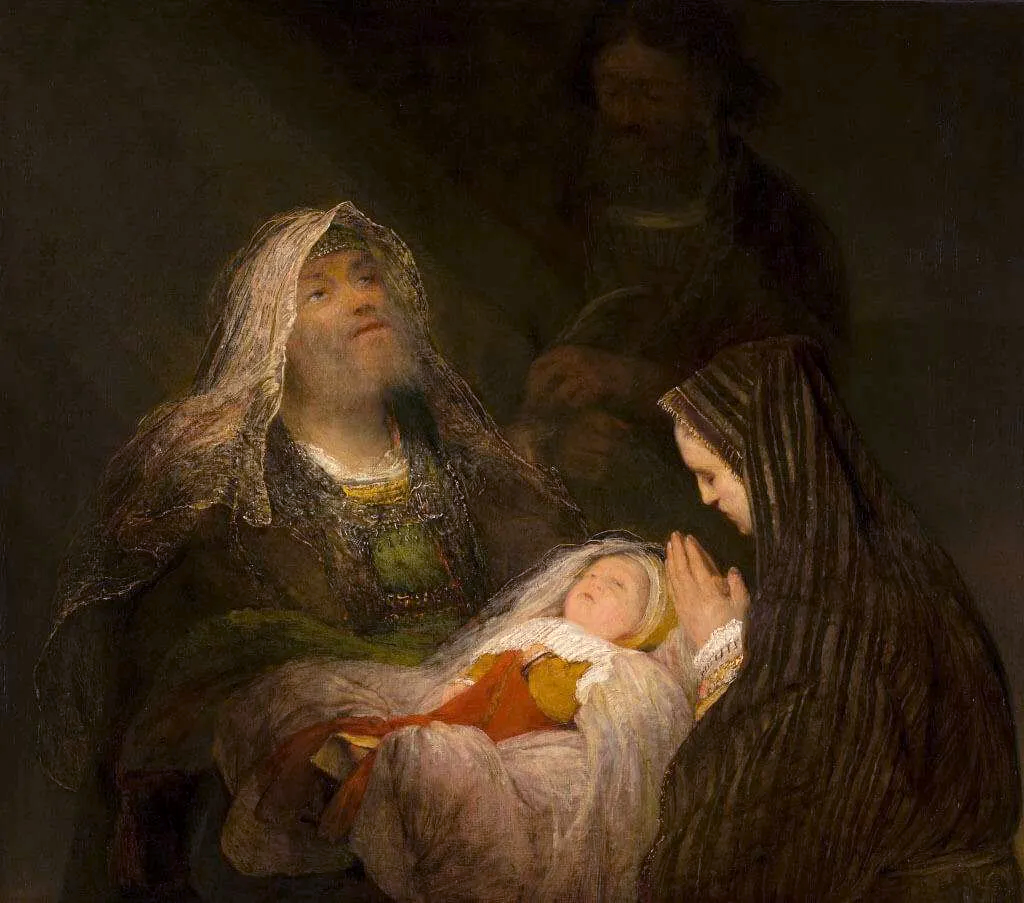
BEING PRESENT
In this world of global communication, it would seem that today we can all be present to one another much more easily and readily than decades ago. However, are we really present when we rely more and more on electronic communication as a substitute for face-to-face presence? Something to ponder on.
It would be unfair to downplay the undeniable usefulness of distance communication that telephony brought about in the last century, and that has been greatly enhanced with the advancement of mobile phones, personal computers, tablets, and other devices. All this has enabled us to communicate instantly with our family, friends, coworkers, and people living on the opposite end of the earth.
Electronic social media has practically made it available for most people on the planet to become communicators, and we now meet people online whom we will probably never meet in person. Influencers count the rising number of online followers proudly, knowing it will give them financial profit, and call them “friends”. But how authentic is this sort of communication?
Are we really present when we follow someone online? Is this person by our side in our moments of need of a real presence, or the other way around? What does real presence actually mean?
Being present involves a real and vulnerable relationship with the other person. And relationships imply personal connection. It means gradually getting to know (always respecting the other person’s privacy and the extent to which they allow us to interact with them) how the other person actually lives, what they feel, what makes them happy or sad, what they have or lack, what they look like at different times of the day—not what they decide to show on a screen, but the real person they are.
This is what Jesus meant when He told those who asked them where He was staying, “come and see.” He did not mean to take a peep at the place where He was staying, and notice how messy or tidy it looked. He meant to share real time with Him, to do things together, to listen to His teachings, and watch Him interact with people. To be really present to Him, and Him to them.
Being present to our Creator also implies a personal relationship with Him. It means being attentive to the ways in which God communicates with us, and responding to this communication. We should not necessarily expect to hear God’s voice speaking to us, although this can never be totally discarded. But we can find His voice in Holy Scripture, in what the Saints throughout the centuries have written about their experience with God, in the inspiration we receive when we pray or when we dream, in the insights we get when we interact with other believers, in the way Jesus is shown to us in the face of the needy and the oppressed, in the wonder of nature, and in so many other unpredictable ways.
In this week’s celebration of the Presentation of Our Lord in the Temple we talk about Jesus being presented to the Father. But we should also notice Joseph and Mary being present to the Lord. We should notice Simeon and the prophet Anna being present to this unique moment, and how this presence made the greatest of differences in their lives.
The writer of Hebrews reminds us that what makes Jesus a unique and real high priest is His presence among us, in the flesh, as a human being, partaking our fragility and our humanness, even to the point of suffering the cruelest of deaths on a cross. “Because He Himself was tested by what He suffered, He is able to help those who are being tested,” he states.
Being really present can be uncomfortable because it implies “rejoicing with those who rejoice, and crying with those who cry.” Being present is not being there for others as an attentive spectator, or as a scrutinizer with psychological curiosity, but being in the other person’s shoes, sharing their joy and their sadness, their gains and their losses, and showing compassion in a concrete way, the authentic Way of Love that Jesus showed us in His person.
Fr. Carlos Expósito, Rector
|
RETURN TO TOP
Know That God is At Work
This Sunday's Reflection - January 25, 2026
Get it in PDF form with calendar
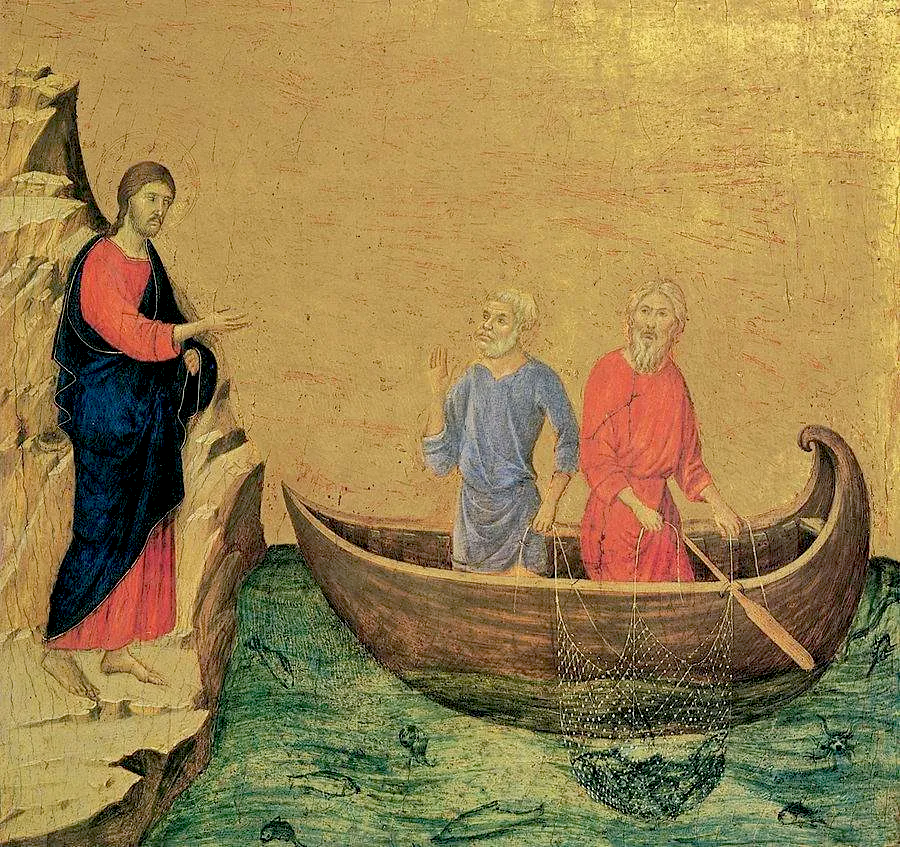
TOO MUCH LEAVES
TOO LITTLE—BUSYNESS KEEPS US FROM FAITH
This text comes from an article originally written by Marcia Hotchkiss for The Living Church’s journal, The Covenant.
Being in a rush and trying to do too many things at once seems to be a common complaint in contemporary culture. Recent Pew Research surveys indicate that 52 percent of Americans report trying to do more than one thing at a time and 60 percent say they are too busy to enjoy life. And when parents of children age 18 and under are surveyed, 74 percent report that their busyness keeps them from enjoying life. In 2016 the World Health Organization and the International Labour Organization estimated that because of working 55 hours a week or more, 398,000 people died from strokes and 347,00 died from heart disease each year.
In a 2024 article in The Atlantic, Arthur Brooks points out that in America busyness confers social status and importance. Furthermore, work performance and busyness are positively correlated. Think of a simple social interaction when someone asks another, “How are you?” If the response is “I’m very busy,” we assume the person is also productive, which is not necessarily true. In 2021 the University of Pennsylvania and UCLA researchers found that the optimal free time in a working day is 9.5 hours, which amounts to almost half of one’s waking hours. Granted, most modern people neither have that much free time nor aspire to have that much. Still, this statistic at least hints at the need our body and mind have for rest.
Over 50 years ago the American Trappist monk Thomas Merton wrote, “There is a pervasive form of contemporary violence to which the idealist most easily succumbs: activism and overwork. The rush and pressure of modern life are a form of violence, perhaps the most common form of its innate violence. To allow oneself to be carried away by a multitude of conflicting concerns, to surrender to too many demands, to commit oneself to too many projects, to want to help everyone in everything, is to succumb to violence.” Most would agree that Merton’s words are even more poignant now than when he originally wrote them.
Perhaps most tragic of all is how the modern American church has bought into this worldly notion that busyness connotes productivity. In an article about church busyness, consultant Tony Morgan says the message often given by these churches is that they value participation over relationships, both with fellow churchgoers and with the God they say they want to worship.
Staying busy is often a way one can avoid clearly looking at oneself—who I am, what I value, what I fear, and to whom I ascribe worth. Morgan adds that pastors and other ministry leaders often stay busy because it gives them cover for exposure of their shortcomings.
One of the early leaders and founders of the contemplative ministry Renovare, Dallas Williard, was asked by a young minister for advice at the beginning of a new ministry. Willard told the young man three times to ruthlessly eliminate hurry. Dallas added that hurry is the great enemy of the spiritual life.
The Great Commission given by the Lord himself in Matthew 18 is to “Go and make disciples.” Many churches do not have time to focus on discipleship, which is transformation that takes place slowly and is difficult to enumerate. Instead, these churches concentrate on worldly metrics like attendance, buildings, and cash, which do not necessarily indicate changed lives.
Four years ago, when we launched the Abbey on Lovers Lane, Bishop Michael G. Smith blessed our space. I remember joking at the time that I was so busy setting up a contemplative ministry that I was no longer a contemplative. I fear that my priorities at that time were dangerously imperiled.
After we began our urban abbey in Dallas, one of my husband’s college friends contacted Tom for help. The friend, a recently retired pastor of a large church on the West Coast, said he would like to speak with Tom about the contemplative’s goal of intimacy with God. He added that this type of union with God was always something he was interested in, but he had been too busy all these years at his church to “look up.” How tragic!
An ADHD mentality also happens in parachurch ministries. Several years ago, we were considering joining a missionary group on a trip overseas. We were frustrated with the group’s lack of communication with us and other volunteers. They had only two U.S. staff members and were planning 17 overseas mission trips in that calendar year. When we suggested that the group had overcommitted, the senior staff told us, “No, God is at work.”
I believe that God is always present, even when human efforts muck up the effort. The Holy Spirit still moves, despite our flaws and weaknesses. Isn’t the message of the cross that even when our efforts fail, God is sufficiency himself? Christ’s offering is a full, perfect, and sufficient sacrifice.
It seems to me that God is far more interested in being with us, as opposed to our doing things for him. “Abide in me and I in you,” Jesus says in John 15:4. The definition of “abiding” is to “endure, to last a long time.” Popular author John Mark Comer makes the point that “love” and “hurry” never go together. The ministry at our urban abbey has indeed shown us a loving God who never seems to be in much of a hurry. Carolyn Arends, Renovare’s director of education, wrote in a song, “We need to slow down to catch up to God’s speed.” Psalm 46:10 says it simply: “Be still, and know that I am God.”
These great truths remind us that God often works more slowly than we would like. Lord, teach us to ruthlessly eliminate hurry so that our spiritual lives may catch up to your speed.
|
RETURN TO TOP
Dispelling Darkness, Around Ourselves and Others
This Sunday's Reflection - January 18, 2026
Get it in PDF form with calendar
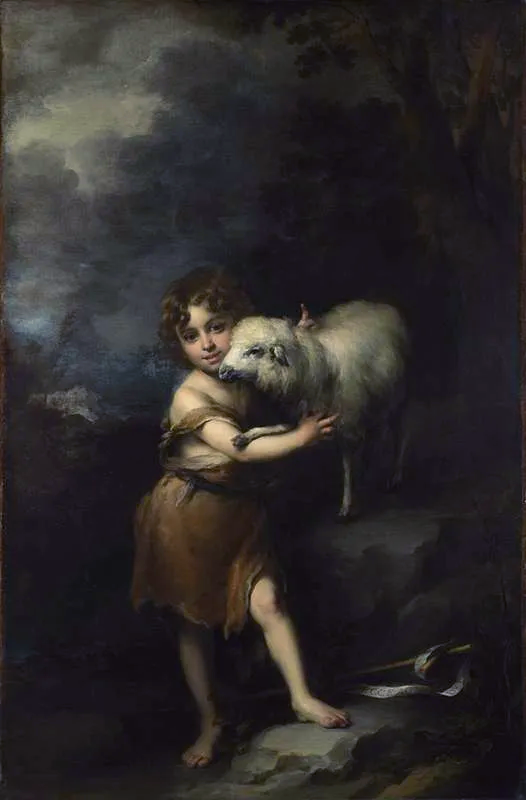
SHINING WITH?
THE RADIANCE OF
CHRIST'S LIGHT
The season after the Epiphany is a constant reminder of Christ as the Light of the World for those who already follow Him, and those who will be brought to Him as new followers.
Light is what dispels the darkness. Even the smallest of lights can shine powerfully in total darkness, and make the greatest difference, making the invisible visible, allowing us to walk with safety where we used to stumble and fall.
This is the reason why light has been used a symbol for revelation, for real knowledge as opposed to ignorance or confused knowledge, for emancipation from the dark powers of sin that keep us enslaved to our own petit self-serving motives, for true and abundant life lived in God’s all-embracing love.
Life and light are closely linked. Plant life on our planet cannot survive without the sunlight, which enables the photosynthetic process that energizes all plant life on the earth. If plant life disappears, the rest of the living creatures on this planet cannot survive. This happens at a really literal biological/chemical level.
True and abundant life, the one that God has given us, which goes beyond our mere biological existence, is based on our spiritual connection with the source of all creation. The revelation of this truth, which unfortunately may remain unknown to many, has come to humanity through different means.
It is somehow intuited by all because our true being is of God. It is also revealed through the observation of nature and its wonders, which leads many to think that such grandeur can only be the result of a loving Creator. It has been revealed to humankind through inspiration by the Holy Spirit, which has been put down in writing throughout the centuries. But it has been ultimately revealed to all in the person of Jesus Christ our Lord, He Himself being the Word made flesh.
In his prologue to his Gospel, St. John the Evangelist declares, “In Him (Jesus Christ) was life, and that life was the light of men…” Here again we see the identification of true light with the real spiritual life which has been meant for us all since the beginning of creation. And we can also see the identification of God’s incarnate Word with this true light.
Right after this, the Evangelist declares, “The light shines in the darkness, but the darkness has not overcome it.”
This declaration reminds us that there is darkness in the world that needs to be dispelled, and this darkness can never overcome the true light. Christ’s victory over death and the powers of darkness, both of this world and the invisible ones, is the ultimate proof of the truth of this statement.
But what about us His followers? Jesus Himself said to His disciples, “You are the light of the World.” He knew His passage on this world would be temporary, but His followers throughout the centuries would keep His light shining.
This Sunday’s Collect asks the Creator, “Grant that Your people, illumined by Your Word and Sacraments, may shine with the radiance of Christ’s glory…”
In St. Paul’s Letter to the Corinthians, chapter 1, he writes, “I give thanks to my God always for you because of the grace of God that has been given you in Christ Jesus, for in every way you have been enriched in Him, in speech and knowledge of every kind…”
Let Christ’s light also illumine us that we may shine forth His radiance, and dispel the darkness that surrounds us, so that others may also see the light.
Fr. Carlos Expósito, Rector
|
RETURN TO TOP
In Loving All, We Fulfill Our Covenant
This Sunday's Reflection - January 11, 2026
Get it in PDF form with calendar
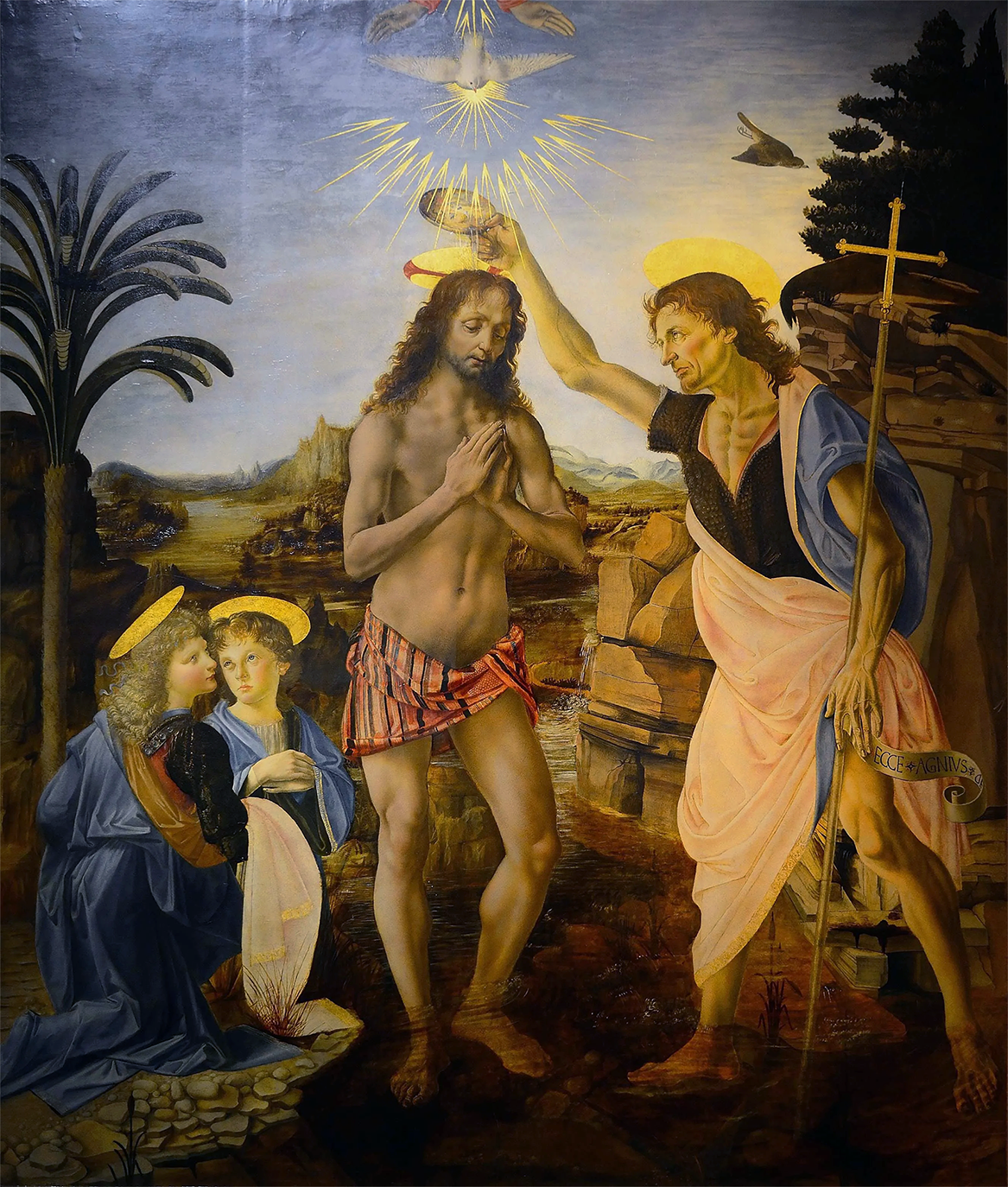
CHILDREN OF THE
COVENANT
Christianity is a covenantal faith. It is the direct heir of Judaism, which is also a covenantal faith. Throughout the Old Testament (which means Old Covenant) we read how God took the initiative in several instances throughout His deeds of salvation for His people to establish covenants with them, mainly through chosen leaders like Noah, Moses, and Abraham.
In all cases, it was not human beings summoning the divine to establish a mutual agreement as a way of earning divine favor or forgiveness. It was always God extending His gracious initiative to seek the salvation of His people, by establishing the rules by which they should abide if they freely and responsibly chose to be saved.
Unfortunately, although there were always righteous people who did abide by the rules and were thus favored by God, there were also many others who were not willing to live out the covenants, and preferred to follow their own wrongful ways of life.
When the proper time came, however, God decided that a totally new kind of covenant would be established between Him and those who were willing to be aligned with His loving will. This time the covenant would not be based on a series of commandments or rules. He would send His beloved Son to be incarnate among His people, and He Himself would show them, not in a set of rules, but in His own words and deeds, how to live the only true and abundant life based on an all-encompassing love for all—a self-giving love even to the point of self-sacrifice.
This is why the writings depicting the Good News of Salvation shown through Jesus Christ’s words and deeds, as well as the letters and other documents written by His earliest true followers have been named The New Testament (or The New Covenant).
Jesus Himself instructed His first followers to spread out this Good News of Salvation to the whole world, and He instructed them to make use of an initiation rite that was already well known in His time: baptism. Immersion in water as a sign of cleansing from sins, and a renewed life was already a common practice in Jesus’ time. He Himself was baptized by John in the river Jordan.
John called his baptism “a baptism of repentance”, which pointed to the fact that those who took part in it were willing to change their old ways and begin a new life in God’s righteousness. He also proclaimed that after him one would come that would baptize them “with the Holy Spirit”. He was clearly pointing to Jesus, whom he later baptized.
The baptism that Jesus prompted his followers to take would include repentance, of course, but it would also infuse them with the power of the Holy Spirit to transform their lives, to align them with God’s loving will, and to sustain them on the right path. This is the Christian baptism that we continue to perform to this day, and through it we are reborn as true children of God, and members of His Holy Assembly: the Church.
Through the waters of baptism we become children of the New Covenant, the one God has made with us by His grace through His incarnate beloved Son, Jesus Christ, who was willing to give His own physical life that we might have abundant and true life.
As part of His Covenant, we are bound to Him by love. There are no lists of commandments to follow, although we do not discard the commandments given by God to His people, but, as Jesus Himself stated, we follow the rule of love. If we love our Creator with our whole being, and love our fellow human beings and the rest of creation as part of ourselves (which is strictly true, by the way), then we are fulfilling the Covenant we enter into when we are baptized. Then, the words Jesus heard from His Father are also addressed to each of us: “You are my beloved child in whom I am well pleased.”
Fr. Carlos Expósito, Rector
|
RETURN TO TOP
All Experiences to Bring His Kingdom Near
This Sunday's Reflection - January 04, 2026
Get it in PDF form with calendar
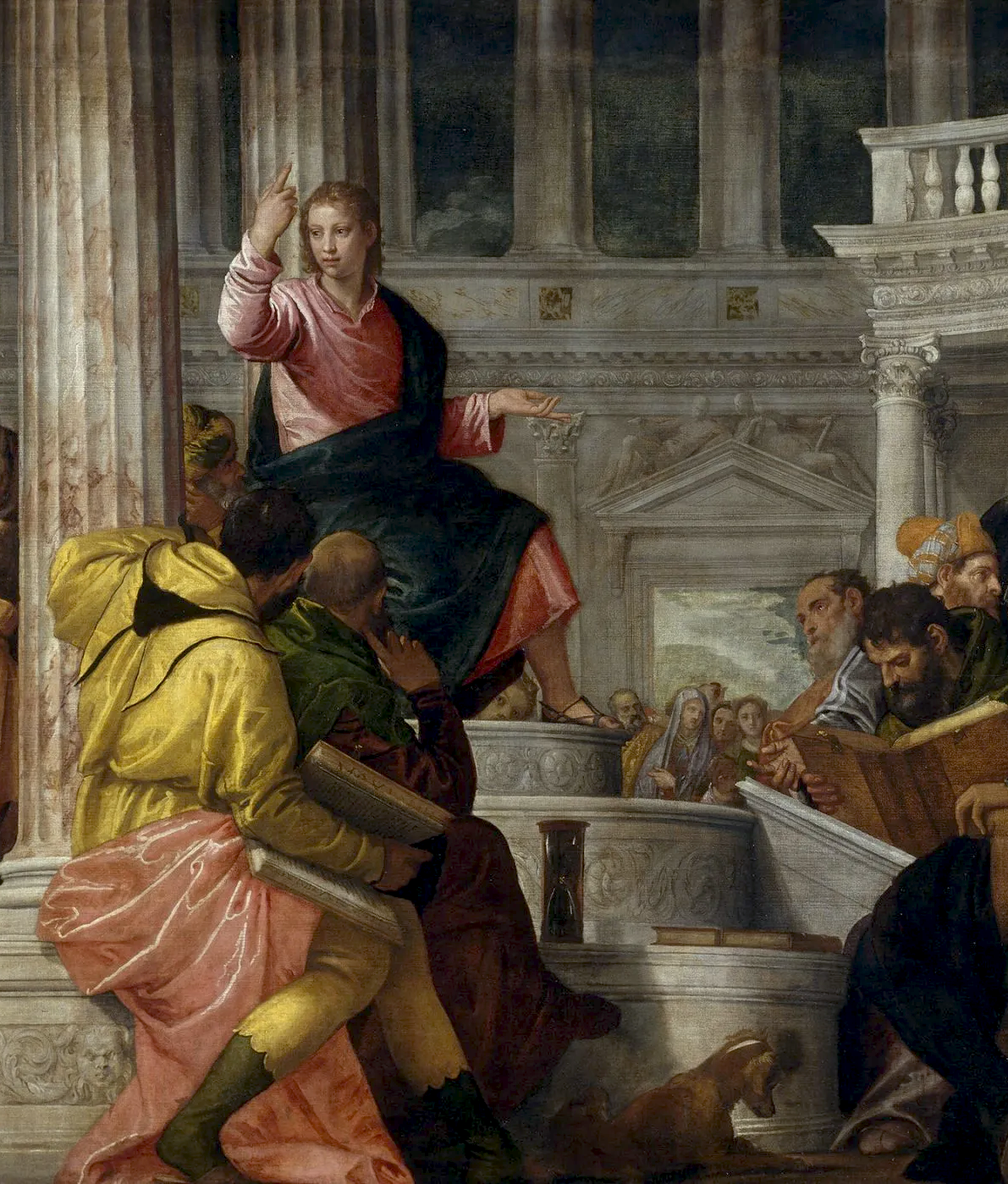
CHRISTMAS MESSAGE FROM PRESIDING BISHOP
SEAN ROWE
The following is a short message from the Presiding Bishop, Sean Rowe.
Dear people of God in The Episcopal Church,
If you imagine yourself as a character in the Gospel Nativity readings, you’ll soon realize that the first Christmas was not about staying home by a warm hearth with chestnuts roasting and stockings hanging. Everyone in these passages is on the move, mostly without warning and against their will. Joseph and Mary are summoned from Nazareth to Bethlehem for a census. Shepherds, at the behest of an angel, leave their sheep in the fields to see what all the fuss is about. And the three Magi, my favorites, are just sitting there minding their own kingdoms when a star intrudes on their lives and leads them on an unplanned and uncomfortable trip far away from home.
The Anglican poet T.S. Eliot wrote a poem about that arduous journey from the perspective of one of the Magi, recounting, among other things, the difficulty of getting camels to do as they are told. The three kings’ encounter with the newborn son of God was hard, disruptive, and unsettling. And when they returned home—by a different road to elude capture by Herod—it no longer felt like home. In Eliot’s retelling, the first Christmas turned the Magis’ lives upside down, and they had mixed feelings about the whole experience.
You might be greeting Christmas this year with the awe of the shepherds or the wariness of the Magi. Either way, the Gospel reminds us that Jesus came both to experience all of the joy, uncertainty, and brokenness of our humanity, and to bring God’s kingdom near. The birth of the Christ Child heralds a new reality in which the last shall be first, the hungry will be fed, and the stranger among us shall be welcomed as a beloved child of God.
This Christmas, I hope that you will join me in proclaiming these good tidings by supporting the most vulnerable among us with a donation to one of these Episcopal Church ministries:
Episcopal Migration Ministries, which works with dioceses and ministry networks to serve migrants and protect their rights.
Good Friday Offering for the Episcopal Church of Jerusalem and the Middle East, which supports lifesaving ministry in Gaza and across the Holy Land.
Episcopal Relief & Development, which works for lasting change in communities affected by injustice, poverty, disaster, and climate change.
I am grateful to be on the journey of faith with you. May God bless you and all those you love this Christmas and always.
The Most Rev. Sean W. Rowe
Presiding Bishop
The Episcopal Church
|
RETURN TO TOP
To Become as He Is
This Sunday's Reflection - December 28, 2025
Get it in PDF form with calendar
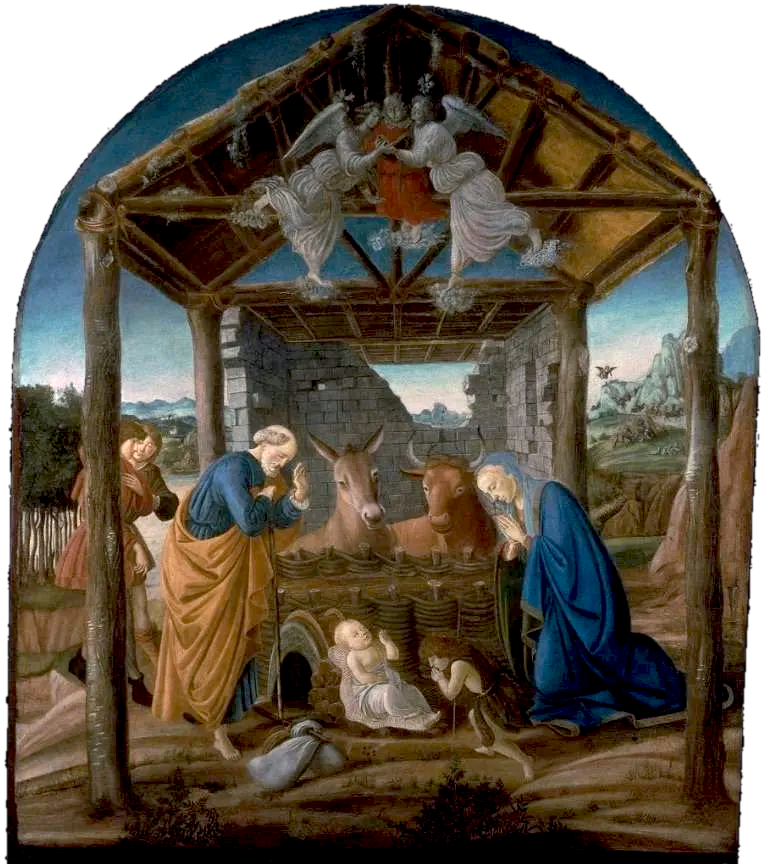
GOD HIMSELF HAS ARRIVED
The following is an article from December 14, 2025, originally written by Fr. Will Brown, rector of All Saints’, Thomasville, for the Living Church/“The Living Word”.
A very Merry Christmas to everyone. I hope everyone took a copy of the little booklet containing the great O Antiphons, short prayers which Christians traditionally recited daily beginning on December 17 and ending the day before Christmas. They are, as the introduction to the booklet says, very ancient prayers, and very beautiful. The introduction also mentions that – by a propitious coincidence, or by divine providence, or perhaps by the artifice of the anonymous author of these prayers – if you take the first letter of the Latin word for the messianic title in each antiphon, and you write them out in reverse order, they spell out the short Latin sentence: “Ero cras,” which means, “tomorrow I come.”
The antiphon for Christmas Eve, not a part of the sequence of the “Great O Antiphons,” is nevertheless extremely beautiful, and each year on this evening I find myself very moved by it: “Or ever the sun is risen in the heavens, you shall see the King of kings proceeding from the Father, As a bridegroom out of his chamber.”
This night is a very holy night, the commemoration by the disciples of Jesus of an event lying mystically at the very center of the universe, the very center of history, made holy-beyond-telling by the coming of the transcendent, eternal and uncreated God into the middle of his creation, into the middle of human history. This is the night that changed everything for the whole universe, like a nuclear bomb buried in the earth. On this night the indissoluble union of God with his creation, a union that had been hidden inside the womb of the Virgin Mary for nine months, on this night it was made visible, dawning over the horizon of God’s transcendence and man’s expectation, “to shine on those who [dwelt] in darkness and the shadow of death, and to guide our feet into the way of peace.”
We were in trouble, on a trajectory that led to death and total destruction, helpless against the onslaught of the powers of darkness and death arrayed against us, collectively and individually. No one has expressed mankind’s desperation, to my mind, better than WH Auden in his “Christmas Oratorio,” which I quote almost every year:
The Pilgrim Way has led to the Abyss.
Was it to meet such grinning evidence
We left our richly odoured ignorance?
Was the triumphant answer to be this?
The Pilgrim Way has led to the Abyss.
We who must die demand a miracle.
How could the Eternal do a temporal act,
The Infinite become a finite fact?
Nothing can save us that is possible:
We who must die demand a miracle.
A far cry from Jingle-Bells and tinsel and the inflatable Santa Clauses that our culture thrusts upon our consciousness every year, beginning around the end of October. Advent is a really a time to remember the desperate straits into which humanity has steered, and her correlatively desperate need for a Savior.
But on this night we become aware, we remind ourselves, that God himself has arrived – not merely an emissary from the army of angels who, since the beginning of human history had been fighting valiantly on man’s behalf, but who had nevertheless been losing ground against the determined onslaught of Satan’s kingdom. On this night God himself has arrived to fight for us, and therefore the angels break forth into singing. Luke’s Gospel says that when Jesus was born, “suddenly there was… a multitude of the heavenly host praising God and saying, ‘glory to God in the highest, and on earth peace among men with whom he is pleased!’” (Luke 2.13-14).
But as with so many of the mysteries of our faith, there is a disjunction in all of this. God himself has come among us! The angels break forth in a song of victory! The powers of death and hell are shaken! And what is it like? It is like a newborn, lying in the straw. Yet in truth, this is Emanuel: God with us. This is God’s victory and our salvation.
We speak in lofty terms about the salvation of the world manifested at Christmas, but what difference does the mystery of the Nativity make for us as individuals? Or, in other words, how may we appropriate this mystery to ourselves? There has for a long time been a devotion to the infant Jesus among Catholics, and if you pay a visit to our crèche at the back of the church, you will find an instance of it with the devotions on the prie-dieu, but we might be apt to find it all kind of inexplicable or saccharine. So what does our devotion to the Lord’s nativity and infancy really mean?
Expounding the French School of Catholic spirituality, Father Pierre Pourrat, suggests that we consider, in essence, what it meant for the eternal Word of God to become a newborn babe – that is, what humility and abnegation is demonstrated by God’s Son in this most improbable of condescensions. And the magnitude of this humility is truly inconceivable. That is, as Jacques Derrida put it: “…this becoming… Nothing – that is what appears impossible, more than impossible [less than nothing, something other than something], the most impossible possible, more impossible than the impossible if the impossible is the simple negative modality of the possible,” (Sauf le Nom). In the Christmas Crib, the eternal has become a finite fact.
But Father Pourrat (quoting M. de Renty) says:
“The infancy of our Lord is a state in which WE must die to all and in which the soul waits for and receives orders from God in faith, silence, and respect, in innocence, purity, and simplicity, and lives day by day in abandonment, looking in a manner neither before nor behind; but uniting with the holy Child Jesus who, dead to himself, receives every order from his Father…. We must… as it seems to me, follow these footprints of Jesus Christ our model by the grace of his infancy.
We must ask our Lord, at every time, but especially at Christmas time, ‘to fill us with the spirit of his holy Childhood.’ This is the spirit needed by the Christian. Did not the Saviour say: ‘[Truly, I say to you, unless you turn and become like children, you will never enter the kingdom of heaven]’? The virtues of the state of Christian infancy are, in fact, indispensable to those who wish to belong truly to God. It is first of all the renunciation of our own spirit and the total abandonment of self to Jesus in order to let ourselves be led by him, like a child who surrenders itself in all that concerns it to those who have charge of it. Furthermore, these virtues are those which call to mind the special characteristics of the child, complete indifference, simplicity, purity, sweetness, and meekness, and finally innocence.”
Therefore, with the Shepherds, “Let us go over to Bethlehem and see this thing that has happened, which the Lord has made known to us.” But let us look upon it with the eyes of faith and devotion, asking the Lord to make us like his Mother in our love for him, and like himself in our willingness to become as he is, even in his holy infancy.
|
RETURN TO TOP
His Love Never Rejects Us
This Sunday's Reflection - December 21, 2025
Get it in PDF form with calendar

FROM SHAME TO GRACE
Shame is a feeling that has its roots in a sense of inadequacy, of not living up to certain standards or expectations. Society with its agreed upon—but also imposed—norms and expectations can make most of us ashamed in terms of what we have been able to achieve in our material and intellectual lives. It is as if the only way not be ashamed were if we ever managed to attain the fortune of billionaires or the fame of relevant academicians, famous athletes, or movie stars.
Even at the spiritual level it is frequent to feel ashamed, comparing our moral imperfections and limited way of loving to a perfect loving Creator. Shame acts as a constant deterrent in our possibilities of becoming more Christ-like, making us believe that it is an impossible task, and that we will always fall short of what our God wants from us.
Shame and humility are not the same. From a spiritual standpoint, humility is the recognition that we are dependent on God’s grace, and that through His loving grace we can grow and expand our love, and become better images of Him who created us.
When we realize how great God’s love for each of us is, and how dear our lives are before His eyes, shame no longer has a place in our lives. The need for purification, for getting rid of all that stands in the way of our relationship with the Creator, with one another, and with creation itself, is always there, but it no longer makes us feel that we deserve scorn or rejection. God will never reject us.
This Sunday’s Collect reminds us of this need, but also acknowledges how it is through God’s loving grace that we can better be prepared to be in tune with the mind of Christ. It reads, “Purify our conscience, Almighty God, by your daily visitation, that your Son Jesus Christ, at His coming, may find in us a mansion prepared for Himself…”
The God of Holy Scriptures is a redeeming God. Only a God that loves His creatures, not for any so-called merits, but for simply being, acts in the way that His beloved Son showed us, by giving Himself up in love for us.
The stories told in the Bible are human and divine. They were written from a human perspective, so that they engaged us at our very core, but they are always inspired by the Holy Spirit, God’s Spirit of Truth and great love for His creation, and particularly for us human beings.
In the story of how the the incarnation of God’s beloved Son took place, we can notice the interplay of human shame, as a product of what society expects, and God’s healing grace, communicated through His heavenly messenger. Mary’s pregnancy out of wedlock was seen as a disgrace by the society of her time. It would probably be punished by stoning her to death. Joseph felt betrayed and ashamed of being betrothed to a woman who, in his limited human view, could only be pregnant by another man.
However, God in His loving grace puts Joseph at ease by sending His messenger and expounding the truth of Mary’s heavenly conception and mission.
St. Paul was aware that his past behavior as a persecutor of the faithful was something that tormented him, and he himself made this clear in his writings. He was also aware that the new Gentile converts to the faith were not perfect followers of Jesus’ Way of Love.
However, he begins his letters, mostly by mentioning God’s grace to all, as in his Letter to the Romans: “To all God’s beloved in Rome, who are called to be saints: Grace to you and peace from God our Father and the Lord Jesus Christ.”
Grace and peace to us all because our loving God has done away with our shame.
Fr. Carlos Expósito, Rector
|
RETURN TO TOP
Abundance; Our Part in His Promised Kingdom
This Sunday's Reflection - December 14, 2025
Get it in PDF form with calendar
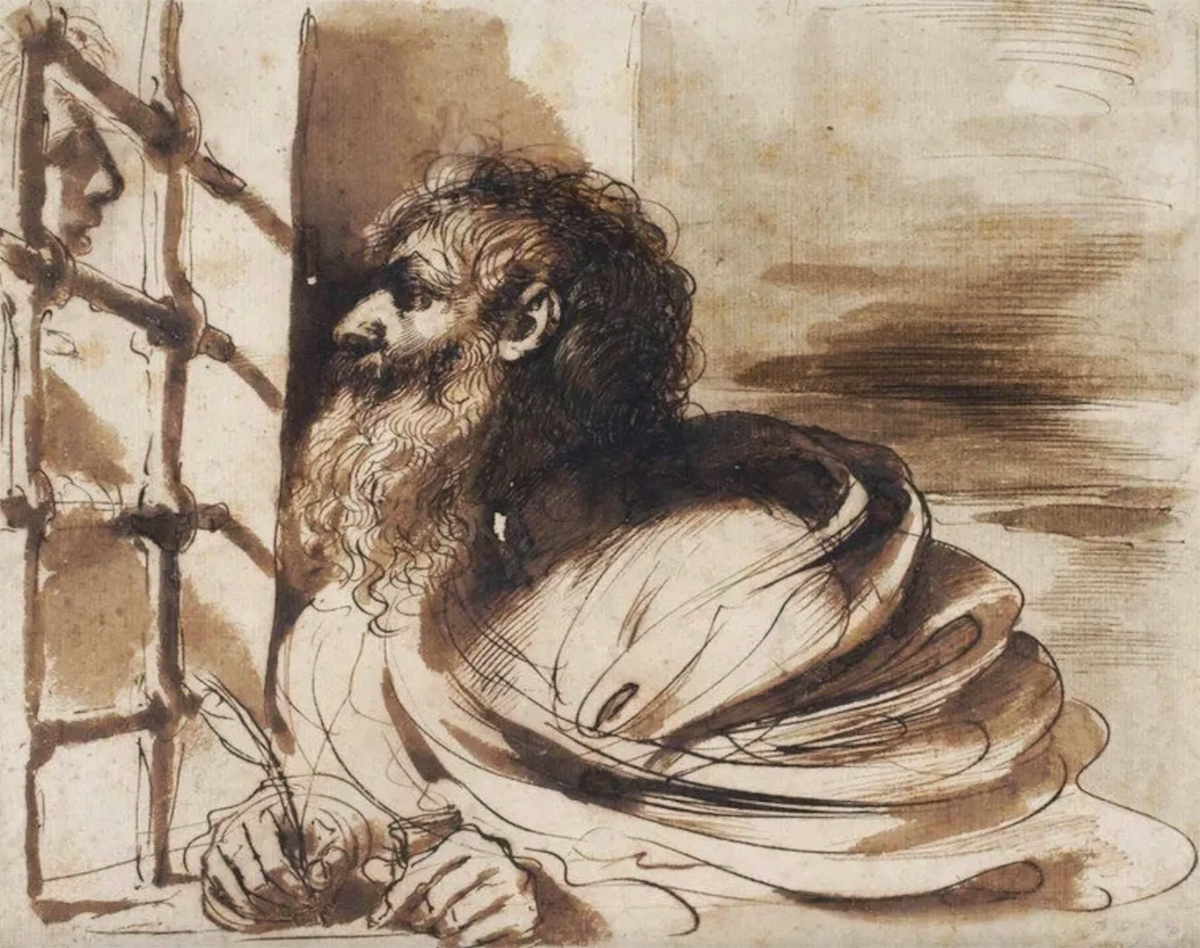
WAITING FOR
?THE PRECIOUS CROP
We come to the Third Sunday of Advent, Gaudete Sunday, or Rose Sunday as it is also known, which reminds us that this is a season for patient and expectant waiting, but also a season for great rejoicing in what is awaited.
Imagine the joyful expectation of someone whose living depends on farming, knowing that when the crops are gathered there will be abundance for them and their family, and even enough to give to those who are lacking. Such joy is great indeed. Nevertheless, the expectant joy of those who await the coming of our Savior into our lives cannot compare to any other kind of joy.
In his letter the Apostle James urges his addressees to “be patient until the coming of the Lord”, and uses the image of the farmer I just referred to above. He also reminds them of how the prophets who spoke in the name of the Lord are the good examples they must heed, and spurs them with these words: “Strengthen your hearts, for the coming of the Lord is near.”
The prophet Isaiah is widely cited by the New Testament writers due to the abundance of references that he makes to the coming of the Day of the Lord, and also to his depiction of the “suffering servant”, a character that most closely resembles the messianic image of Jesus Himself as the Savior.
His images in chapter 35 are really beautiful and joyful, bringing great hope and consolation to his contemporaries, and great inspiration even for present-day followers of Christ: “then the eyes of the blind shall be opened, and the ears of the deaf unstopped; then the lame shall leap like a deer, and the tongue of the speechless sing for joy…for waters shall break forth in the wilderness, and streams in the desert…”
These are images of great comfort. They speak of restoration, of fullness of life and health, of desert places transformed by living waters. The prophet is clearly referring to a future time, but he urges the people to prepare accordingly. He proclaims, “Strengthen the weak hands, and make firm the feeble knees. Say to those who are of a fearful heart, “Be strong, do not fear!”
Psalm 146 gives us images of justice and righteousness based on the Lord’s great compassion, but also makes clear that the greatest blessedness consists in imitating God’s ways. The writer states, “Happy are they who have the God of Jacob for their help! Whose hope is in the Lord their God…the Lord loves the righteous; the Lord cares for the stranger; He sustains the orphan and widow, but frustrates the way of the wicked.”
The prophetic message that runs throughout the Holy Scriptures is always one of full trust and joyful hope in God’s plan for the restoration of our broken relationships, with the Creator, with one another, and with creation itself, but it is also a message that urges us to cooperate, to be active participants in the process, to co-create this restored world with Him.
The farmer who joyfully awaits the crops has done a lot of previous work: sowing, weeding, fertilizing, watering. Farmers know the earth with its nutrients will in due time yield the expected crops. There is a certain degree of certitude in the joyful wait. A storm or some other unexpected event may ruin the crops, but most of the time there will be abundant crops.
In our case, as Jesus’ followers, even if we happen to be “the least among them”, there is total certitude in our joyful wait of the consummation of His Kingdom of Love. We do not believe in a lying Savior, but in one who enfleshes God’s Spirit of Absolute Truth. Still, as in the farmer’s case, we need to do our part. We are active participants. We are urged to enflesh Him in our daily lives, thus aiding to bring about His promised Kingdom of abundant and true life.
Fr. Carlos Expósito, Rector
|
RETURN TO TOP
What It Means To Repent
This Sunday's Reflection - December 7, 2025
Get it in PDF form with calendar
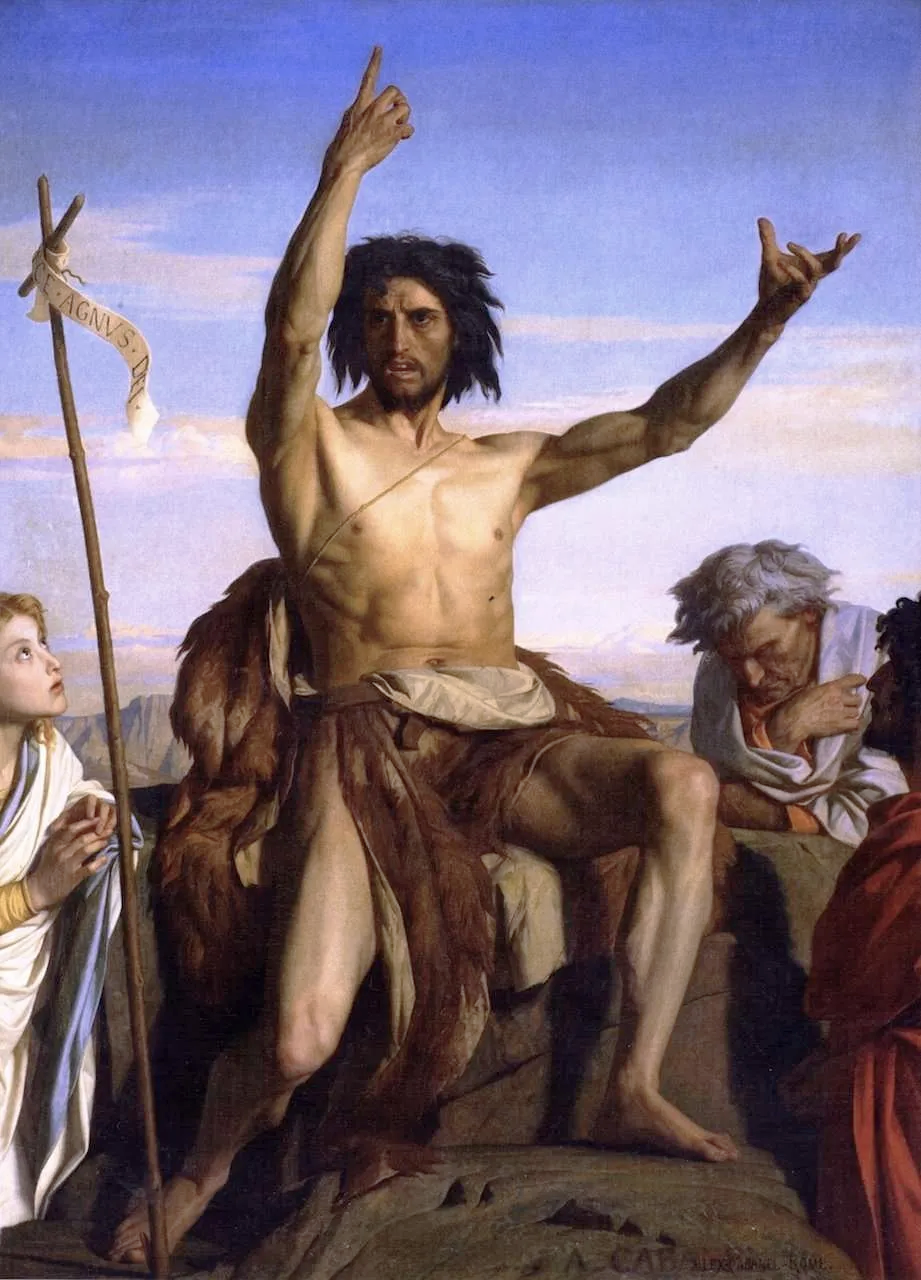
TRUE REPENTENCE
Both the Old and the New Testament speak abundantly of repentance as the starting point for our redemption. However, this term has lately been misinterpreted, “watered down”, we might say, so that it has become a synonym of feeling sorry for our sins.
A true sense of sorrowfulness for what we have thought, said or done wrong, or not said or done right, is a good starting point for true repentance, but if this is all we get, then we wallow in guilt, and that is not what our God intends for us. The sense of wrongdoing must be used as a spur to make a radical change for the better in our lives.
The Collect for this Second Sunday of Advent calls us to “heed their (the prophets’) warnings and forsake our sins, that we may greet with joy the coming of Jesus Christ our Redeemer…” Notice how clear the language is here. The call is not to wallow in guilt, not even to feel deeply sorry for our wrongdoings. It is a call to heed what the prophets warn, to change our ways, to leave our sins behind, so that we can tune our lives with Him who incarnates God’s loving will for the world.
Psychologists all agree that in order to change our way of living, everything starts at the conscious level. Our consciousness is what rules our attitudes, our words, our actions. In this sense, the Greek word used in the New Testament for repentance (metanoia—a change of mind or consciousness) shows us a clear path to redemption.
This change will not take place easily, or by our own efforts only. The way we perceive the world is affected not only by the limitations of our physical senses, but by the socio-cultural context that surrounds us. Apart from what science acknowledges, we Christians acknowledge there are other forces in the invisible world that can also influence our conscience. So we need constant attention to our thoughts, and ceaseless prayer that the Holy Spirit may inspire us and enable us to attune our consciousness to Christ’s mind.
Ultimately, when we come to the realization (not simply at the intellectual level, but at the deep level of our inner consciousness) that we are all one in Christ’s love, then the command to “love our neighbors as ourselves” will become a natural behavior in our lives, and not something we must struggle to fulfill.
This sense of unity, of real harmony in all of creation was hinted by the prophet Isaiah in one of the most beautiful depictions of God’s Kingdom, in chapter 11. “The wolf shall live with the lamb, the leopard shall lie down with the kid, the calf and the lion and the fatling together, and a little child shall lead them…the nursing child shall play over the hole of the asp, and the weaned child shall put its hand on the adder’s den…”
St. Paul, in his letter to the Romans, chapter 15, encourages the converts to the New Way to “welcome one another, therefore, just as Christ has welcomed you, for the glory of God. For I tell you that Christ has become a servant of the uncircumcised on behalf of the truth of God in order that He might confirm the promises given to the patriarchs, and in order that the Gentiles might glorify God for His mercy.”
And St. Matthew the Evangelist, in chapter 3, tells how John the Baptizer’s main message was a radical call to repent “for the kingdom of heaven has come near.” To the Pharisees and Sadducees who came to him to be baptized, he warned them “to bear fruit worthy of repentance.” And he foretold the coming of one who would baptize them “with the Holy Spirit and fire.”
The warnings are clear. Let us pray that in the power of the Holy Spirit we may heed them and truly repent.
Fr. Carlos Expósito, Rector
|
RETURN TO TOP
When One Must Be Ready
This Sunday's Reflection - November 30, 2025
Get it in PDF form with calendar
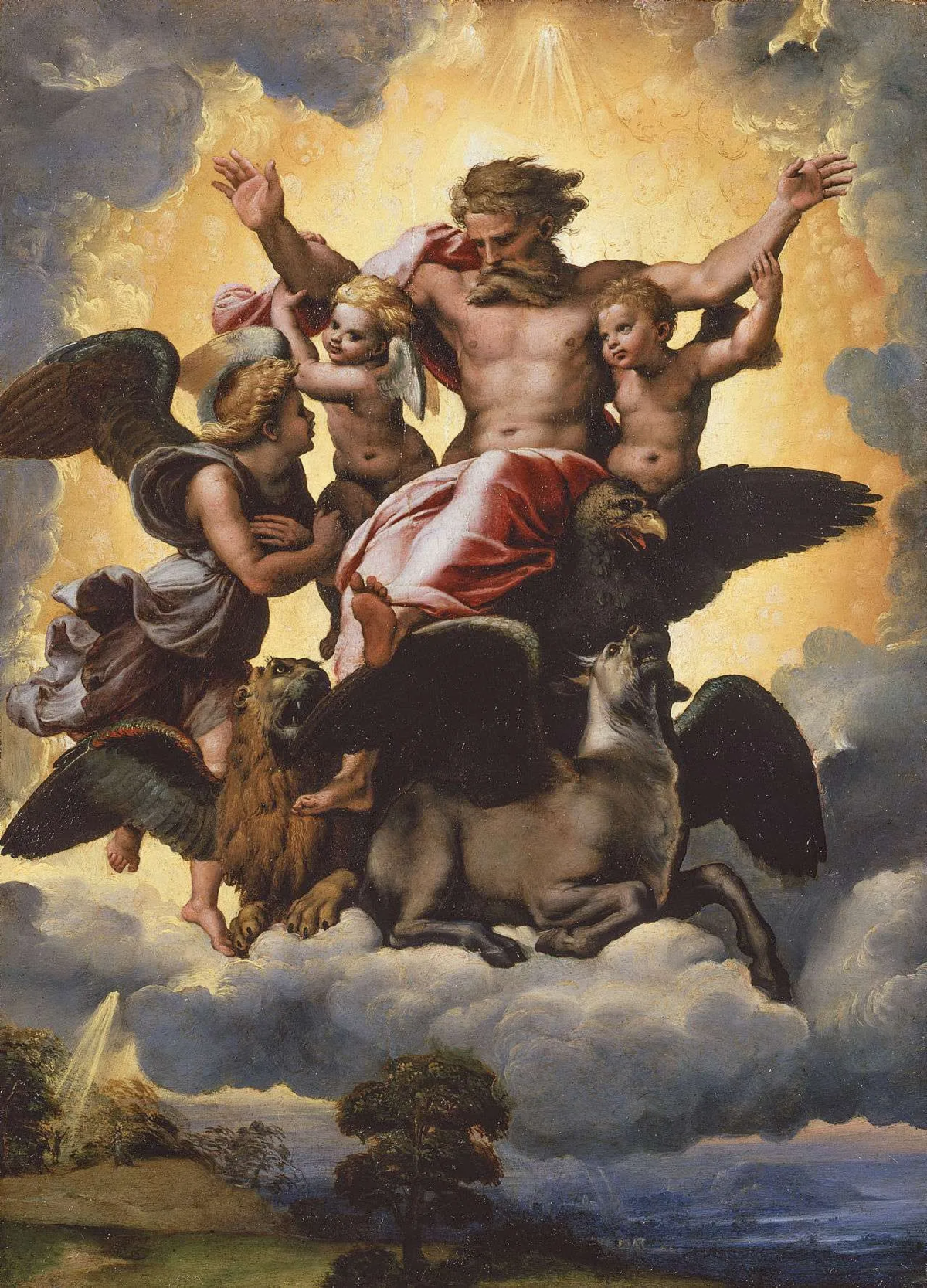
THE TIME IS
ALWAYS NOW
The Advent Season always starts with the message about the end times. And since it is a season pointing to Christmas, we may wonder why.
The fact is that this season of the Christian Year, the first one, lasting four weeks, has a threefold time perspective.
It looks to the past in the sense of reminding us of the time when God became incarnate in Jesus Christ our Lord.
It takes us to the present when it reminds us of the need to prepare to receive our Lord Christ in our own lives here and now.
And it looks to the future when, as in this week’s readings, it makes reference to the consummation of time, when God becomes All in All, and we share in Christ’s glorious resurrected life in all its fullness.
I have always thought that our lives as Christ’s followers should be a perpetual Advent. After all, it should be lived out in such a way that we are constantly reminded of how God became flesh, emptying Himself of all heavenly glory, and not only lived as one of us, but even gave Himself up for us in a shameful and cruel death on a cross, that by His death He might overcome the powers of darkness and death that enslave us.
It should also be lived in such a way that we show forth in our lives that Christ Himself is our Lord and King, as this Sunday’s Collect so aptly puts it, “…give us grace to cast away the works of darkness, and put on the armor of light, now in the time of this mortal life in which your son Jesus Christ came to visit us in great humility…”
Notice it says, “now in the time of this mortal life…” The petition is for our Creator to grant us right now the grace to do away with the works of evil, with the worldly ways of selfishness and undue self-centered greed which keep us enslaved to sin and death, and deprive us from the true abundant and real life based on the authentic joy of sharing and self-giving that Jesus Himself showed us during His earthly life.
The Collect also points to the consummation of time, to the fullness of His reign, when He will be All in All, by stating, “that in the last day, when He shall come again in His glorious majesty judge both the living and the dead, we may rise to the life immortal…”
However, the fact that this second part of the Collect starts with the word “that” clearly shows us that this will be a consequence of what we, through God’s grace, do in the here and now of our lives.
The sense of present, of the now in people’s lives, whether they lived centuries ago, live in the present, or will live in the distant future, is common to most of the readings for this Sunday.
In Psalm 122 we read, “Now our feet are standing within your gates, O Jerusalem…To which the tribes go up, the tribes of the Lord, the assembly of Israel, to praise the name of the Lord.”
In his letter to the Romans, St. Paul states, “You know what time it is, how it is now the moment for you to wake up from sleep. For salvation is nearer to us now than when we became believers.”
And in St. Matthew’s Gospel, Jesus prompts His followers to be always ready, in the now of their lives, with these words, “But about the day and hour no one knows, neither the angels of heaven, nor the Son, but only the Father… Therefore you also must be ready, for the Son of Man is coming at an unexpected hour.”
The time is now. Always now. Let us not procrastinate.
Fr. Carlos Expósito, Rector
|
RETURN TO TOP
|












